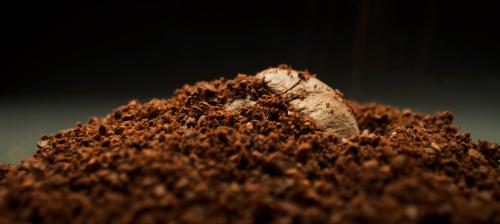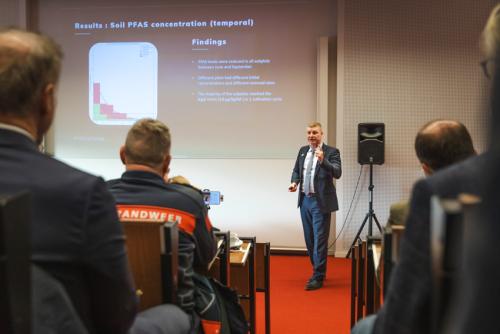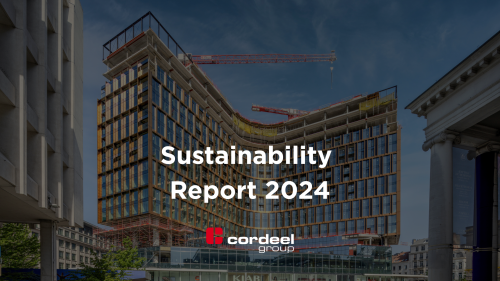Cordeel Group and Grounds Up join forces to give coffee waste a circular future
The dark impact of coffee
Coffee is one of the most valuable commodities in the world. The black gold plays a significant role in the economy and provides employment for millions of people worldwide. On average, a Belgian consumes 800 cups of coffee per year, making us the eighth-largest coffee consumer in the world. Unfortunately, only 1% of the brewed coffee is actually utilized, resulting in 67,000 tons of coffee grounds ending up as waste annually. The environmental impact of this waste is substantial. The processing of one kilogram of coffee grounds generates 775 grams of CO2 emissions, equivalent to a car traveling a distance of 7 kilometers. In Belgium alone, this waste pile accounts for a staggering 52,000 tons of CO2 emissions per year. Globally, this problem reaches alarming proportions, with approximately 18 million tons of coffee waste being discarded each year.
Coffee waste as a raw material
But there is hope. As part of their dedicated efforts in sustainable and circular solutions, Cordeel Group has recently invested in Grounds Up. Grounds Up is a start-up that believes in the potential of coffee grounds. The company is committed to finding innovative ways to convert this waste into valuable raw materials for various industries and applications, creating maximum value and minimizing the environmental impact. Coffee waste can be utilized as a raw material in numerous applications such as construction materials, plastics, cosmetics, food, water purification, candle wax, fertilizer, pesticides, biofuels, substrates, and more.
Lukas Van Quickelberghe, founder of Grounds Up: "To save all the coffee waste in the world from ending up in landfills, we rely on a network of partnerships, including social and economic enterprises. We are thrilled to have gained the trust of Cordeel Group in this endeavor. It enables us to expand our operations and increase our impact, with the goal of becoming the world's largest coffee waste processor."
Erik Groes, board member of Cordeel Group: "With our support, we can help Grounds Up develop and scale their innovations. Our expertise and framework, including R&D, will allow them to find the most suitable applications. There are various possibilities for sustainable construction materials such as concrete, building blocks, and insulation materials, as well as other applications like coffee oil as a replacement for palm oil or the use of coffee wax in candles. All options are open, and we are pleased to support the realization of their ambitions."
From coffee hotspot to coffee cup
At "coffee hotspots", where significant amounts of coffee waste are available, the coffee waste is collected. Subsequently, the waste is decontaminated and dried using the energy-efficient microwave technology of MEAM, resulting in a stable raw material. This dried residue is then extracted to create two new raw materials: coffee oil and coffee press cake, which serve as inputs for the semi-finished products and/or final products of Grounds Up.
To achieve a coffee bio-composite ("The Grounds Compound"), the coffee press cake is mixed with a biopolymer based on sugar starch. The resulting material is then injected into the desired shape, such as a reusable coffee cup ("The Grounds Cup"). This cup is reusable, leak-proof, dishwasher-safe, insulating, and stylish. Furthermore, the cup is fully recyclable at the end of its lifespan. The coffee oil, in turn, can be utilized in the cosmetic industry.
Grounds Heroes Movement
Grounds Up also aims to raise awareness on a large scale and create consciousness among local communities and businesses about the potential of coffee waste as a raw material. For this purpose, they have established the Grounds Heroes Movement, an initiative in which companies commit to no longer discarding coffee waste and through which various charitable causes can be supported. Through this movement, Grounds Up strives for social impact and seeks to involve as many people and organizations as possible in solving the problem.









